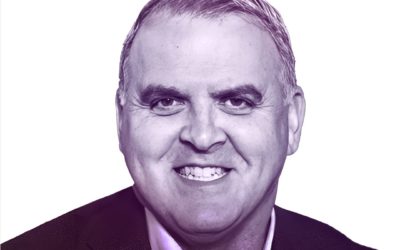“There’s the saying that medicine is a form of science and art. It’s both. You can learn what you learn in a textbook, but to apply it, everyone has their own touch.”
Henna Shah is a Family Nurse Practitioner working in Dermatology. Dermatology is an area of medicine concerned with the diagnosis, treatment, and prevention of diseases of the skin, hair, nails.
A day in the life of a Nurse Practitioner.
Henna: “So I would say my day usually starts at about seven in the morning. I’ll start with my first patient and it really fluctuates. It’s such a dynamic field, so it can be from skin cancer surveillance, like a full body check, and then the next patient can be acne or rash, a surgery, removing a mole. So it just is very, very dynamic. It changes from one patient to the next and then I’m there about eight to nine hours a day. Some charting in between, but that’s about it. Taking post calls, calling back test results and things like that.”
Marketing yourself and building trust.
Henna: “The practice is out there, they’ll advertise as a whole, but there are so many different offices that you’re basically branding yourself.”
Henna: “I would say each patient interaction, so about 30 to 40 times a day, you’re introducing yourself to somebody new, you’re getting their trust. Every patient interaction is important and each interaction is an opportunity to market yourself and build trust. You’re re-meeting somebody every 10 to 15 minutes. A lot of those patients are established over time and they come back to you if they like you.”
Henna: “Some people part of my practice like to do social media. They have private Instagram or public Instagram accounts where they’ll show procedures that they do. So really you can market yourself as much or as little as you want to.”
Education and experience.
Henna: “I knew at an early age that I wanted to be a nurse and an advanced practice nurse, so it was a little bit more of an accelerated for me. I would say typically it’s about a 6-8 year process of schooling. Then based on what field you want to be in, you’re looking at a couple additional years, concentrated field training, things like that.
Henna: “For me, I went into nursing school right out of high school. I went to the University of Michigan and got my bachelor of science in nursing. There’s so many different ways in nursing to get a degree. But if you want to be an advanced practice nurse, then you go back and get your advanced practice degree.”
Henna: “Then I worked for about a year in the intensive care unit as an RN just to get that hands-on experience with patients and working in a multidisciplinary field. Even as a nurse practitioner, even though I am autonomous and I see my own patients and I do my own thing, you still work with physicians and surgeons. You need to know how to communicate your thoughts and be the patient’s advocate.”
Henna: “I did that for about a year and then I applied for graduate school and I got my masters of science in nursing at the University of Pennsylvania. That was a 16-month accelerated program. Most programs are 2-3 years.”
Skincare tips.
Henna: “Being in the Jersey shore area, skin cancers are at an all-time high there. You should be putting on sunblock every single day. If it’s winter and if it’s cold, because the sun is still out. Even if it’s cloudy, there’s still sun. It’s just that you’re not seeing it because the clouds are marring it. You’re still getting those harmful UVA and UVB rays.”
Henna: “The UVA rays penetrate from the top layer of the skin into the second layer of skin and they cause aging, wrinkles, sunspots, and Melanoma. Melanoma is the big deadly one. That’s the one that can metastasize and go into different parts of the body. UVB rays are the ones that just hit the top of the skin. Those are the ones that cause sunburns and localized skin cancers. So either way you need to be protecting those because if the sun is out every single day, you’re getting that exposure.”
Henna: “In the summertime of course wear sunblock, SPF 30 or higher. During the winter you don’t have to necessarily wear a sunblock, but you can wear a dual action moisturizer, which is just your face cream. Still wear hats, go underneath the umbrella, into the shade. It’s really important because I think that’s the number one easiest thing that we can do that can really prevent.”


